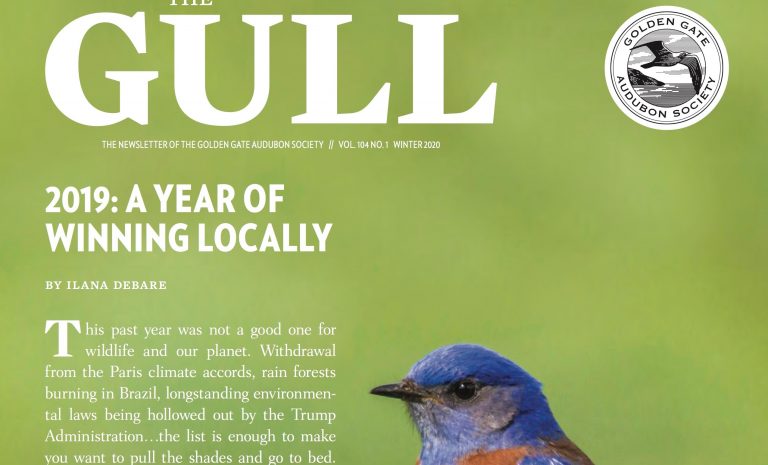Golden Gate Bird Alliance is delighted to introduce our new Executive Director, Glenn Phillips.
Phillips, who grew up in the East Bay, brings a wealth of experience in bird conservation, urban nature education, and non-profit management. A lifelong birder, he was executive director of New York City Audubon for seven years. He is also the first openly gay executive director in GGBA’s 105-year history.
“We are fortunate to have someone as experienced as Glenn assuming the role of our new Executive Director,” said Eric Schroeder, President of the GGBA Board of Directors. “Glenn’s leadership and vision will help guide us towards our goal of creating North America’s most bird-friendly urban community.”
Having recently moved back to the Bay Area with his husband and two children, Phillips said he can’t imagine a better homecoming than his new role at GGBA.
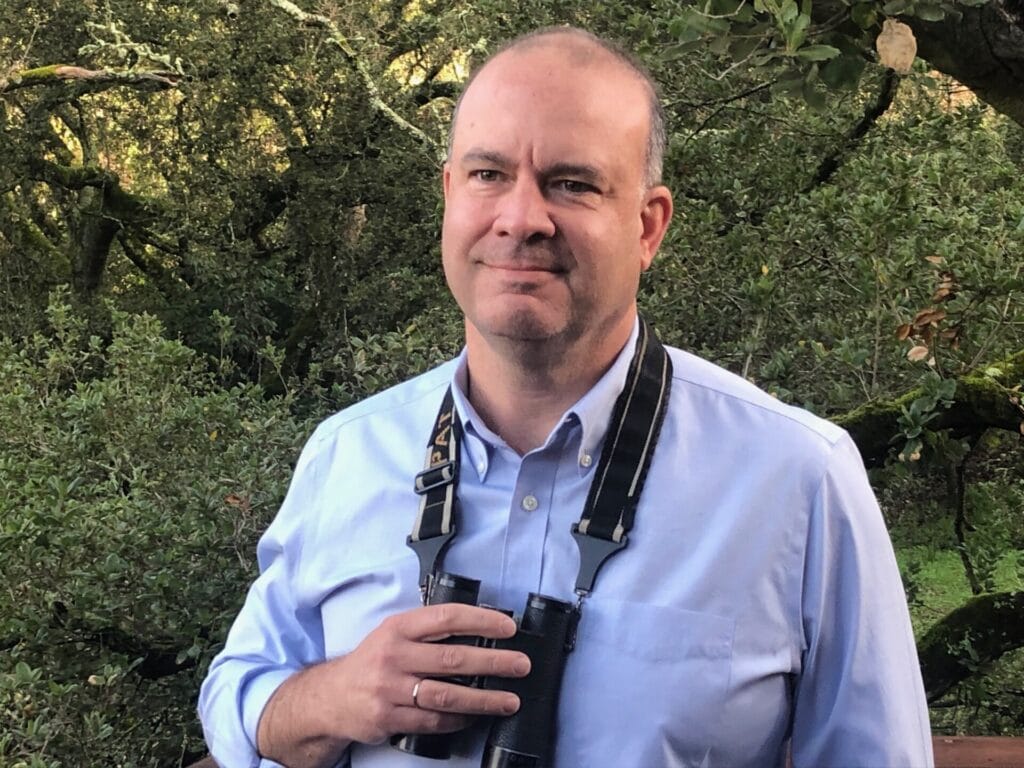
Glenn Phillips, our new Executive Director
“As a kid growing up in the East Bay, the forests, chaparral, grasslands, and wetlands around the bay were my playgrounds, looking for wildflowers, reptiles, and birds,” he said. “When I moved to New York after college, my mother asked, ‘Why is my nature boy moving to New York City?’ After 30 years and stints at the Brooklyn Botanic Garden, Prospect Park, and New York City Audubon, the Golden Gate has called me home.”
Over his seven years at New York City Audubon, Phillips grew its membership by 50 percent and increased its revenue from $650,000 to $1 million. Before working at Audubon, he served as vice president for education at the Prospect Park Alliance in Brooklyn and manager of programs at the New York Botanical Garden in the Bronx. After his time at Audubon, he worked for the American Bird Conservancy, doing advocacy to prevent bird-building collisions.
Now—as the country starts to emerge from a year of Covid-19 lockdowns—the time is ripe for new leadership and ambitious new initiatives at GGBA.
“The pandemic opened so many new eyes to the wonder of birds in our own backyards,” Phillips said. “Now we have an opportunity to work together to make our neighborhoods better for both birds and people. We need to reduce our footprint on the planet, seek environmental justice for those who have borne the brunt of short-term thinking, and build a stronger, more diverse group of stakeholders committed to protecting birds and the remaining open spaces in our communities. In this era of #MeToo and #BlackLives Matter, we must also ensure that the birding community is safe and welcoming for all.”…
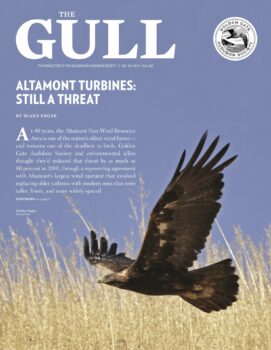 The Fall 2021 issue of our quarterly Gull newsletter is now available online, with stories on bird mortality at the Altamont Pass Wind Resource Area, our new Richmond Christmas Bird Count, and reintroducing native oysters at Pier 94. Plus our upcoming guest speakers and a feature on California Towhees!
The Fall 2021 issue of our quarterly Gull newsletter is now available online, with stories on bird mortality at the Altamont Pass Wind Resource Area, our new Richmond Christmas Bird Count, and reintroducing native oysters at Pier 94. Plus our upcoming guest speakers and a feature on California Towhees!
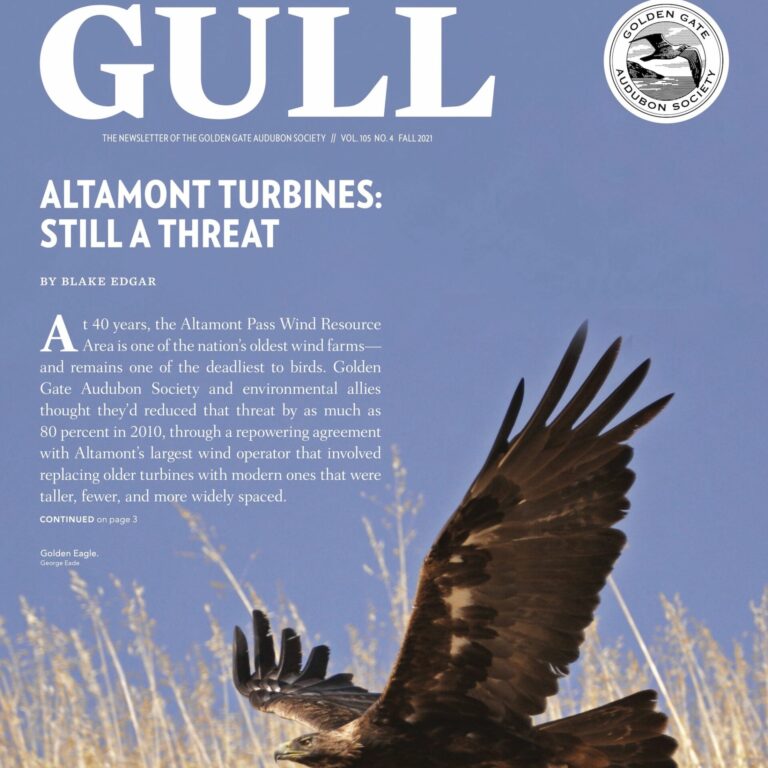
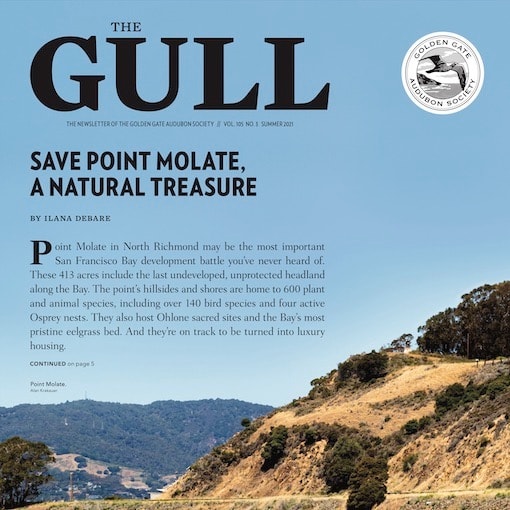
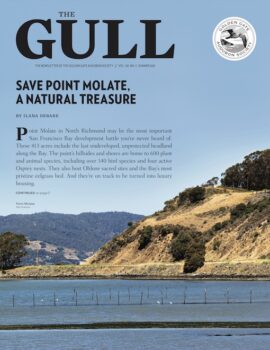
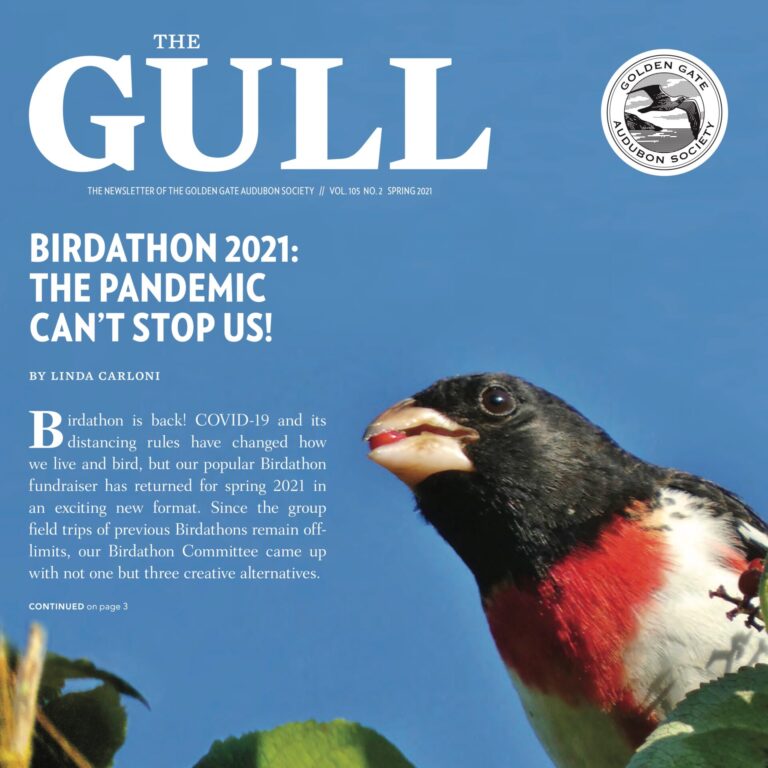
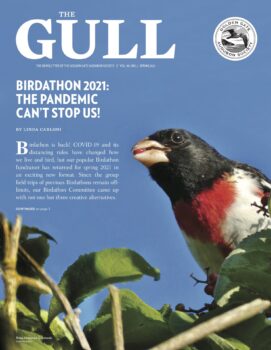
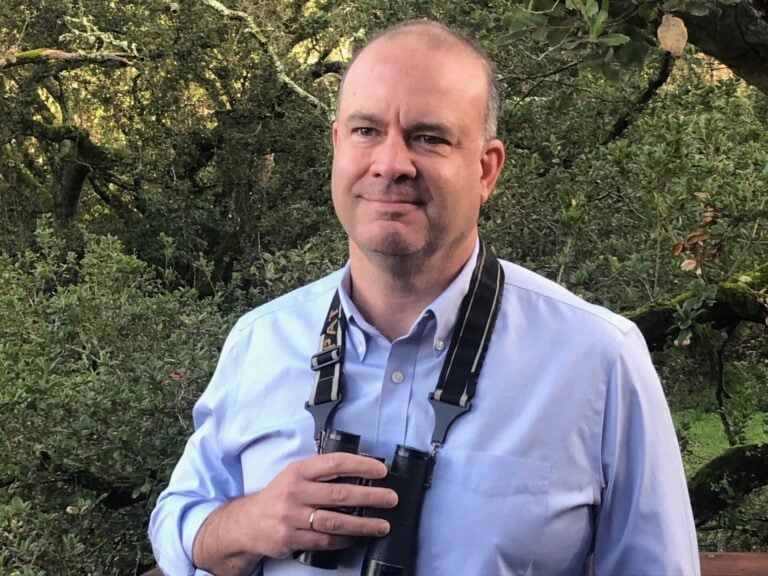
 Glenn Phillips, our new Executive Director
Glenn Phillips, our new Executive Director
